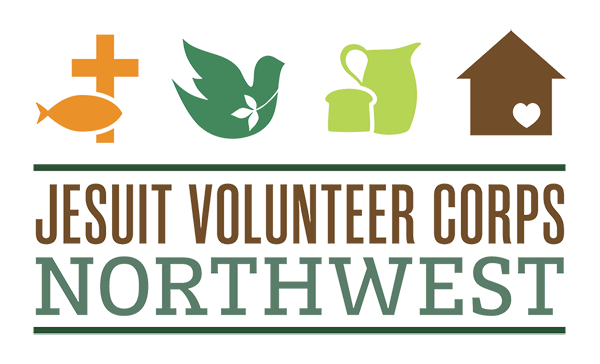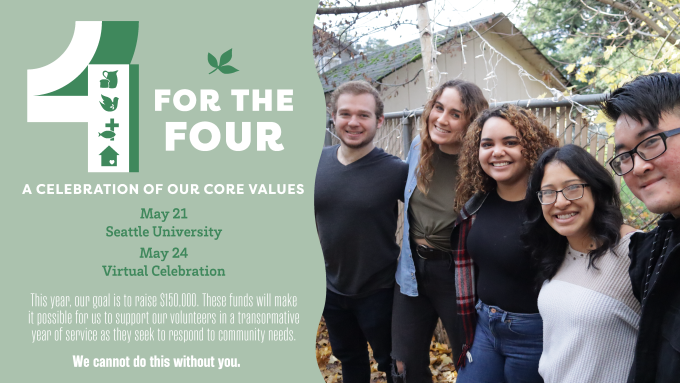In our latest blog post, JV AmeriCorps member Karilynn Cooper (Spokane, WA ’14-15, Seattle, WA ’15-16) shares her experience identifying and overcoming her mental health biases through her service with Community House Mental Health Agency.
Before beginning my service to adults with severe mental illness, encountering an individual on the streets who appeared to be talking to someone who wasn’t there probably would have driven me to turn around and walk in the opposite direction. In my second year of serving through the JVC Northwest AmeriCorps program, I have had the pleasure of joining the staff at Community House Mental Health Agency (Community House) in Seattle in embracing and welcoming those who are used to having backs turned on them.

This mindset that I was once guilty of possessing reflects the general thought processes and biases of a society that walks away from the growing issue of mental illness, forming a greater divide between those with a diagnosis and those without. Community House, which was founded in 1976 in Seattle, is a small out-patient mental health organization. Community House provides treatment services in the way of case management, psychiatry, and medication management. There is a weekday treatment program consisting of hobby and support groups, peer support, snacks, and a hot lunch. Most importantly, Community House is a safe haven in the Seattle community for clients to come, connect, and receive support from peers and staff.
My role at this placement as a case manager (three days a week) and a day treatment staff member (two days a week) is a hybrid position that mixes two important aspects of Community House. Serving in these two roles provides me with two different lenses in which to view and assess the needs at this organization, leading to many opportunities to facilitate changes in different areas. As a case manager, I provide support, service coordination, and assistance with articulating goals for treatment to a case load of individuals. As a day treatment staff member, I wear many hats: serving as a cook, medication distributor, group facilitator, or house chores supervisor to Community House attendees.
Often, the attendees are “regulars” who show up frequently to socialize, partake in a chore, attend appointments, or eat lunch. The best part of day treatment by far is the time I get to spend simply engaging with these attendees, which is a part of my service that feels the least like “work” and more of a leisure activity. Even after having served in many different settings since becoming interested in social work, I have not once had the opportunity or been encouraged to spend leisure time with clients in order to get to know them as people instead of consumers in need of assistance until I started serving here.

What I witness on a daily basis in my interactions with Community House clients is an overabundance of unique personalities, abilities, hopes, dreams, and talents. I especially notice a longing for connection, a defining characteristic of the human condition that is not always easily recognizable among many in this population. Look a little bit closer and you will see painters, drawers, writers, poets, comedians, beautiful toothless or dentured grins, hard-workers, the brave, the wise, and the generous. You will find those with a wealth of knowledge and intelligence, those who endure the torment of inner voices, or those constantly trying to keep their heads above the deep dark waters of depression.
These are individuals who should not to be ignored but included and celebrated within a society which claims diversity and freedom of expression to be of the utmost importance. We can approach those who are challenged with a mental illness with patience, kindness, humility, and with the purpose of learning from them rather than molding them into what we believe to be “normal.” As I have already begun to have my own biases shattered, I fail to name all of the ways in which I have improved as a person just by spending time with Community House clients. It fills my heart with joy to have the opportunity to assist in maintaining a positive and safe environment for these friends of mine.

